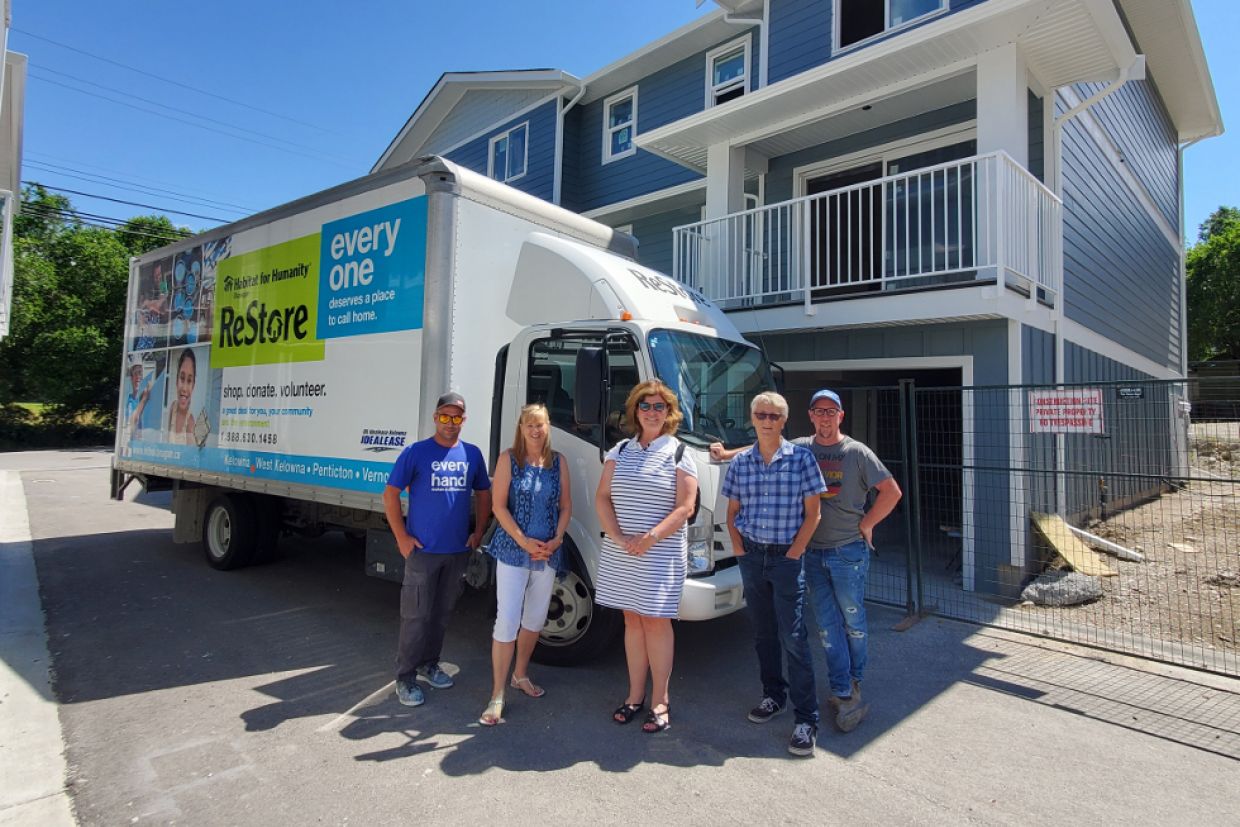Interest rates are rising. The price of buying a home has skyrocketed in recent years. Owning a home is increasingly out of reach for many Canadians.
These factors are making Julia Deans’ job more important than ever. The Artsci’85 graduate is the President & Chief Executive Officer of Habitat for Humanity Canada, a non-profit organization focused on providing people with a safe and affordable place to live.
“The need is getting bigger and we have to fundraise harder,” says Deans, noting rising prices for housing and land, as well as escalating costs for construction supplies such as lumber, are making it more expensive for Habitat to achieve its vision.
Living in an affordable and safe home impacts virtually all aspects of a person’s life. Studies have shown a direct link between affordable housing and improved mental and physical health. It’s key to enabling social mobility – allowing people to improve their financial and social situations. In 2021, Habitat created affordable housing in Canada for 215 families living with low income (which included 489 children). Habitat homeowners buy homes that Habitat builds, paying an affordable mortgage and volunteering 500 hours.
“I am thrilled to be working in an area that is so fundamental to everything that we do,” says Deans. “If you don’t have a safe, decent affordable place to live, you will face challenges in raising your family, pursuing education, and building a career or business. To me, it’s everything. If you want people to be able to seize opportunities, they have to have the foundation of a home.”
Deans works with Habitat Canada’s national office to provide strategic oversight, support, and governance to help the 49 Canadian Habitat for Humanity organizations work with their communities to create affordable housing.
Deans held several non-profit jobs before joining Habitat Canada in February of 2020. Three weeks after taking over, COVID-19 forced her to make some tough decisions. She transitioned the national office to virtual work and helped local Habitat organizations adapt. Many local Habitats had to temporarily shut down home builds across the country and close Habitat ReStores (that are a source of funding for operations).
The pandemic was an opportunity to re-evaluate Habitat Canada’s strategic direction and Deans feels the organization is emerging from the pandemic in a stronger position.
The tradition of Habitat for Humanity volunteers getting together to build a single home for a family needing housing will continue, but with added activities to increase impact.
Deans wants to use Habitat’s strong public image to advocate for more affordable housing. When a politician hears the CEO of Habitat for Humanity Canada is on the phone, they usually take the call.
Deans feels Habitat’s positive image can open doors and help build partnerships with real-estate developers, faith-based groups, and other organizations that are interested in helping families find a home. She also sees Habitat considering renovations to help families facing eviction because they can’t afford critical repairs.
Deans doesn’t care who builds the house – if a struggling family moves into a home, it is a win for Habitat for Humanity.
“We are using our hammers, but we are also using our platform to get more people thinking about housing,” Deans said. “In Canada, we are the national voice for home ownership and, if we can get more support for people on the journey to home ownership, that’s a win. We have a big voice and a responsibility to use it as well.”


